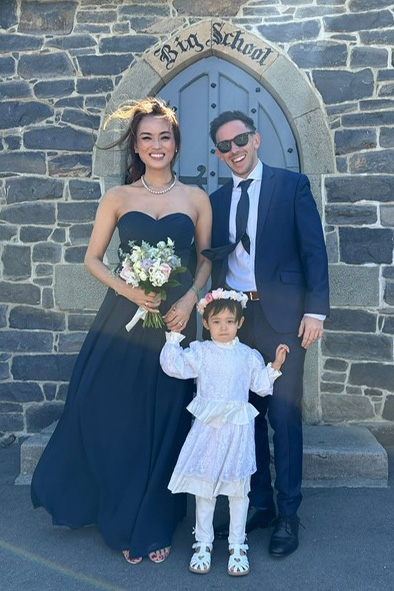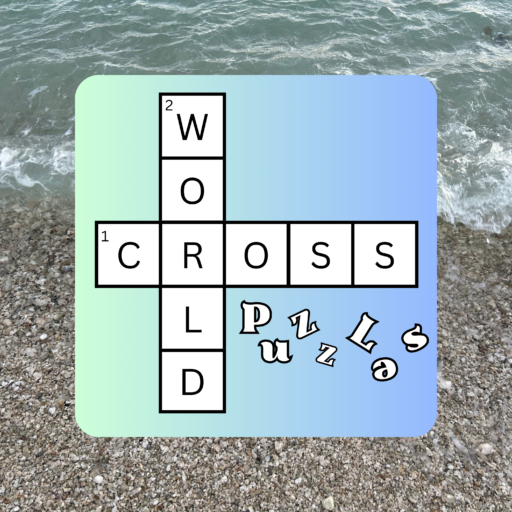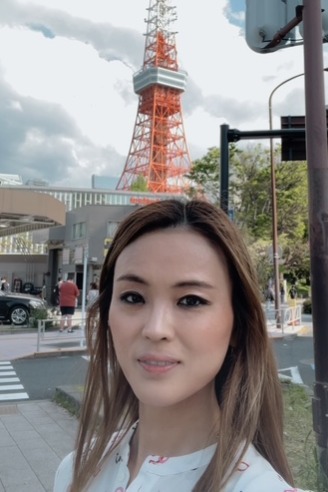
Yuri Akahira is originally from Tokyo. With professional experience spanning the U.S., Singapore, and Japan, she currently serves as a director at a global IT company. She also leads its Employee Resource Group dedicated to fostering the next generation of female leaders. Yuri’s passion for supporting women began in her teenage years. After studying at the University of Oregon, she started her career as a social worker in Washington, D.C., helping women overcome challenges such as homelessness, domestic violence, and substance abuse. She then transitioned to the corporate world, becoming the first Japanese hire at a U.S.-based startup. She established the company’s Japan office, and was appointed Representative Director at the young age of 28. She has also served as the General Manager for a U.S. marketing software company in Japan. A cultural enthusiast, Yuri enjoys connecting with people from all backgrounds. She loves traveling solo to off-the-beaten-path destinations and has a strong passion for dancing, techno music, yoga, meditation, and Snoopy. In 2024, she won the 40s category at Mrs. Universe Japan.
(Click on these icons to follow Yuri: ![]()
![]() )
)
Podcast
Transcript
Introduction
Hello, everyone. I’m honored today to welcome my great friend, Yuri Akahira. She is someone who I respect so much and who I’ve been friends with for about 20 years now. It’s interesting because at first glance we seem different, but we actually have so much in common in terms of our ambitions and the way we really appreciate different cultures from around the world, etc. What I really admire about Yuri is her strength and beauty inside and out, as well as the fact that she’s able to make friends with anybody. We’ll discuss that today in the interview. Thank you so much, Yuri, for joining me today.
Thank you so much, Shiori. I’m so excited to be here today. I’m so honored to be part of this.
Childhood and Upbringing
Could you please start by discussing where you were born and raised?
I’m originally from Tokyo. But I was born in Iwate Prefecture, which is in the Tohoku region in the north. It happens to be the town where Shohei Otani is from. That’s where my mother is originally from, and it’s quite common for mothers to return to their hometowns to give birth. My dad is from Tokyo, and I also grew up in Tokyo until I graduated from high school.
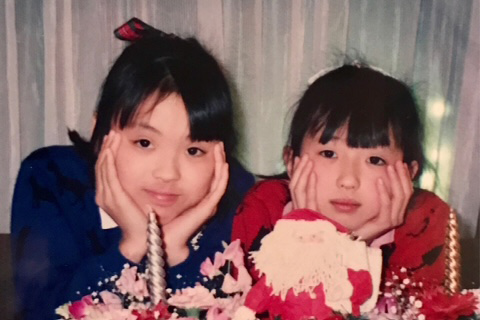
Interest in Other Cultures
I understand that you studied abroad and have been living in multiple countries. But how did you first become interested in other cultures?
I think this was when I was 15, but one of my best friends from middle school moved to LA for her dad’s job. And I had the chance to visit her with other best friends. That was my first time visiting the U.S.
It was honestly an eye-opening experience, because I was always tall growing up in Japan. Japanese people usually aren’t as tall as Westerners, right? So when I visited the U.S., I think everyone appreciated my height. That was such an interesting experience for me. And I had such a great time with my friends.
Then I also had the chance to visit China for 10 days for an exchange program. I’m forever grateful to my mother who found this program, because if she hadn’t told me about it, I wouldn’t have thought of applying. Learning Chinese and visiting China at a young age—I think I was 16—was also a very different experience.
Then, there was an exchange student from Brazil studying for a year in my school. We instantly became best friends, even though she didn’t speak English, and I didn’t speak English very well at the time. We communicated with each other with a Portuguese-Japanese dictionary.
Through her, I met so many international students from all over the world. I also got to hang out with lots of Japanese kids who grew up speaking English, and some of them were mixed Japanese kids. That really got me interested in learning different cultures and languages. And being in that kind of community felt like I could be whoever I want to be. So that got me really interested in studying abroad.
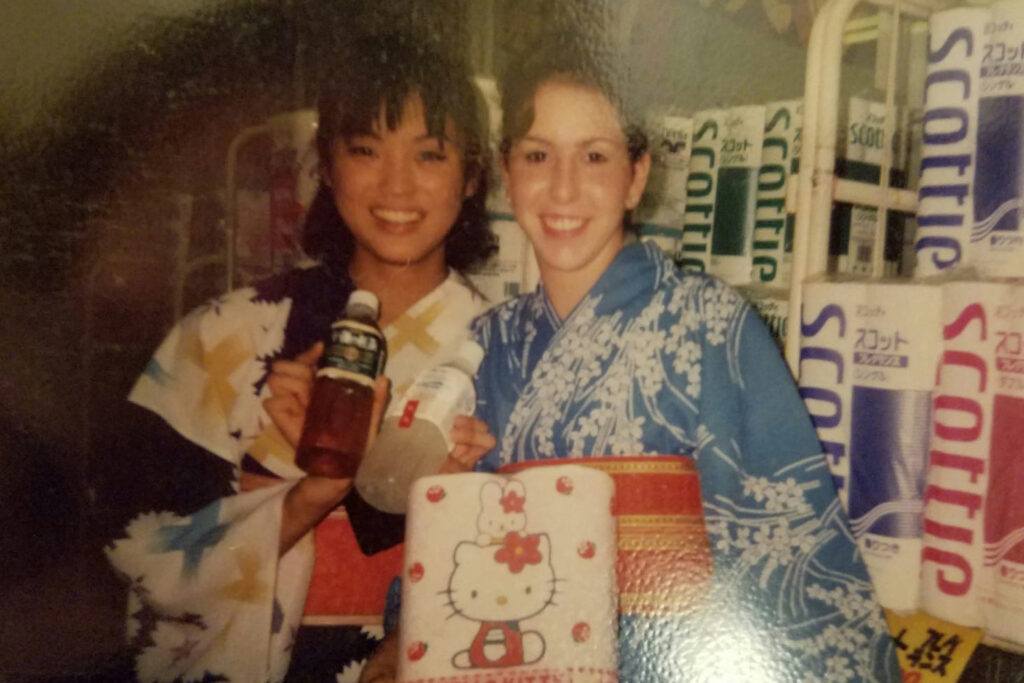
And you studied abroad for college, right? Where did you go to study and what did you study?
Yes, that’s correct. But before I get into that, I have another story. In my senior year in high school, my mother—again, I’m forever grateful to her—found this host family program in Portland, Oregon. So I had the opportunity to visit Portland for three weeks studying English with other international students.
Now they’ve become my American family. They took me to visit one of the biggest schools nearby, the University of Oregon, which is two hours south of Portland. And I totally fell in love with the campus.
So for college, I actually only applied to the University of Oregon because I just fell in love with it. And that’s where I studied. I had an amazing time. I double majored in sociology and international development. I focused on women’s issues, because that was something that I was very interested in.
It’s funny because another person that I interviewed recently also said that she studied abroad at the University of Oregon. That region seems to draw a lot of people. I haven’t visited the University of Oregon, but I understand it’s full of nature and I would love to go someday.
So among the many cultures that you’re familiar with, where do feel most at home?
I think definitely the U.S., because that’s where I’ve lived the longest outside of Japan. And I always felt like I don’t fit into Japanese culture. Places in the U.S. where I used to live, like the Pacific Northwest or the Washington, D.C. area—I think that’s where I feel at home the most.
And why is that? Aside from the fact that you lived there the longest, is there anything special about it?
Right. I think it’s because of the diversity. And the people, definitely. I can be whoever I want to be. And I can just be myself.
As you know, in Japan—or I would say in Asia, because I also lived in Singapore for a bit for work—there’s always some sort of unspoken rule that you’re expected to be a certain way, like “you should be this” or “you should be that.” That kind of expectation’s always there in Asian culture. I always wondered about that ever since I was a teenager.
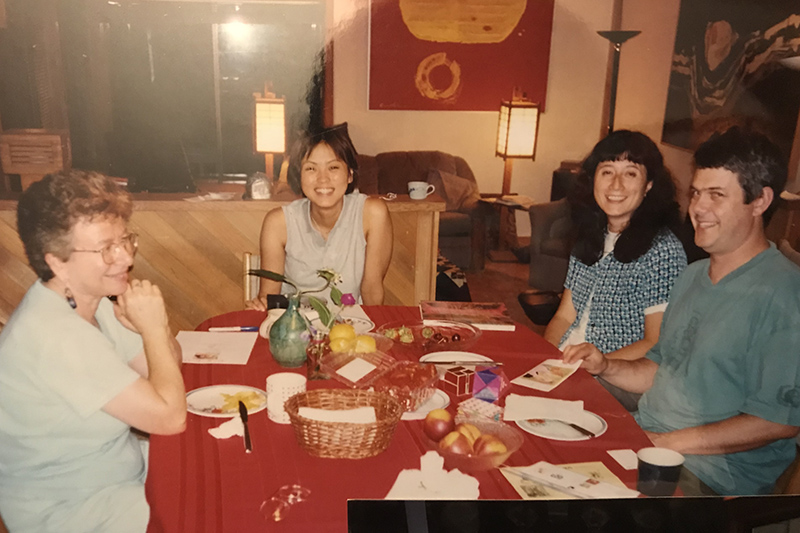
Overcoming Bullying
Because you talked about your teenage years, I was wondering if you could describe a little the difficult experiences you had while you were in Japan as a teenager.
Sure. When I was 13, so that’s our first year in middle school in Japan, I was bullied for a year. It was quite intense, and one of the most difficult experiences I had in my life. And I think the most difficult thing was that I wasn’t able to talk to my parents about this and couldn’t talk to my teachers. I couldn’t talk to any of my friends for help.
And I ended up thinking about committing suicide as well, because the bullying lasted for a year and I just couldn’t take it anymore. And kids can be very cruel, right? The things they did to me were not seen as a big deal back in the day, but I think nowadays they would be considered a big issue in schools.
When I thought about committing suicide, I started writing a will. And all of a sudden, I realized, “Why should I throw away my life for her [the bully]? I shouldn’t waste my life on this negative experience.” So I didn’t go through with it.
But yeah, it was very difficult. Thirteen is quite a young age to feel isolated and alone, and that nobody is able to help. Even though my parents always loved me, always supported me, and were always there for me, I just didn’t want them to feel worried.
Why did this happen, and how was it resolved?
I honestly didn’t understand why that [the bullying] happened. We had moved to a new city, and I was a new student. It’s easy to target a new student to bully, I guess. And I think I always stand out just because I’m so outgoing and try to make friends all the time. I guess she didn’t really like that. I think I was kind of different from the rest of the kids in school. And I kind of knew already that I maybe don’t fit in with the typical Japanese culture where you have to follow unspoken rules all the time.
Alright, so I understand that in the short term, you were writing your will, and that made you realize that this is not how you want to live your life. So it really was a change of mindset.
But I also wanted to ask about the long-term process of slowly building your confidence and recovering from that. I was also bullied in elementary school, and it’s still affecting me in terms of personal relationships. I always have some self-doubt in terms of whether people actually like me or are hanging out with me just to be nice and out of sympathy.
I’m sorry to hear that.
Thank you. I was wondering if you could explain how you built your confidence in your friendships over time after this difficult process.
In Japanese school, every year we have shifts in [homeroom] class, right? I think during the second year in middle school, she [the bully] was still in my class. But I was able to become friends with other students who were new to my class. So I had a friend who I could trust, and I was able to share my feelings and my stories with them. And they simply cared for me.
And I also met a girl who was bullied before. We shared the same kind of experience. I think that definitely helped me feel like I’m not alone at the end of the day. I still couldn’t talk to my parents at that time, but at least I had friends to share my feelings with.
And when I went to high school, as I mentioned, I met so many international students from all over the world. They made me realize that I can be myself. I can be whoever I want to be. And they loved me for who I am. So that gave me a little bit of confidence, and also helped me find my true identity of who I am.
Then I decided to study abroad. It was my decision to study abroad, and my decision to move on my own to the U.S. I accomplished that. And even after I moved to the US, I accomplished lots of different things other than just graduating from school. That gave me so much confidence as a person.
And eventually, being bullied back when I was 13 became just a difficult experience that I had. Of course, I’ll never forget it for the rest of my life. But I think that only gave me strength and helped me become a stronger person.
And if whoever is watching this podcast has experience being bullied or may be bullied now, I hope you know that it’s not going to last forever, and you’re only going to become a stronger person.
Thank you so much for sharing that. And I have so much respect for you because you’ve been open about this experience ever since I met you, when we were still in our 20s. Until I was in my 30s, I wasn’t comfortable with the fact that I was bullied in the past. I was ashamed and embarrassed, and thought I needed to hide it from people I just met. But now I’m completely open because I realized that it might help someone out there and help prevent things like that from happening.
Exactly. I felt ashamed of myself for being bullied. At that time, I only thought, “Why is this happening?” I felt like it was a big shame. But now, looking back, that only gave us strength, and we shouldn’t be ashamed of anything. I think we should be proud that we overcame our hardships.
That’s absolutely true. I think one of the strengths that I can be proud of is that I recognize pain and loneliness in other people. It’s because of that experience. So thank you so much for sharing. And I am so glad that your study abroad and other experiences you’ve had have shaped who you are today.
Family Life
Shifting gears a bit, I wanted to ask about your family. Would you mind telling me how you met your husband?
Sure. I met my husband, Alex, almost 15 years ago. He’s originally from London. When we met, we worked in the same tech company. It was a startup tech company, headquartered in San Francisco and originally from Norway. And we met when we were in Jamaica for a company kickoff. At that time, we were just colleagues.
He was living in Hong Kong, and I was living in Tokyo. And he came to Tokyo for a business trip. I went to Hong Kong for business trips. And then that’s how we got to know each other and became closer. We did two years of this long-distance relationship between Hong Kong and Tokyo first, before he moved to Tokyo for us.
And would you mind telling me about your daughter?
Sure. I had my daughter almost four years ago, during COVID. She is now a wonderful human being who talks a lot now. I enjoy that a lot more than spending time with babies, who don’t communicate much.
Honestly, I had a really difficult birth experience with quite severe postpartum. COVID didn’t help either, because I was stuck in Japan and wasn’t able to travel. Before COVID, I traveled every month for work and personal reasons.
In Japan, natural birth is quite common, but I decided to do the Western way, which is an epidural. And that damaged my back so much that I’m still not able to sleep on it. It’s been almost four years and I’m still dealing with this pain every day.
So it kind of damaged me mentally, emotionally, physically, but I think I’m in a much better place now, and it’s improving year by year. I’m quite hopeful that I’m going to be better in the future.
As you said, I’m sure it’s really helpful that you’re now able to communicate with your daughter, because it’s even more rewarding to have feedback from her and reciprocate that love with each other. That’s really great.
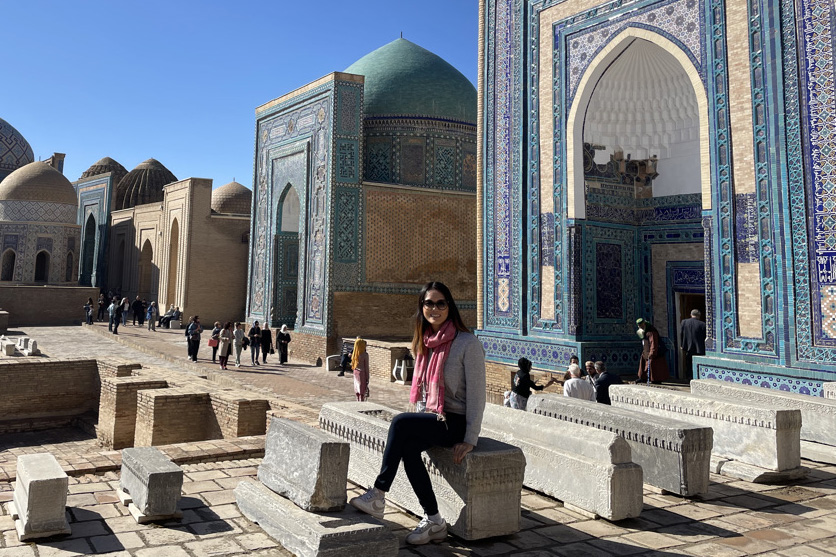
Hometowns Everywhere
You’ve been moving around so much, but where do you consider your hometown?
That is a very difficult question. When I think about it, I feel like I have hometowns everywhere. As I mentioned, I have family in the Pacific Northwest. I also have family friends in the DC area. And then I have parents living in Tokyo. So I feel like I have hometowns everywhere I go. And then outside of the U.S. and Japan, I have lots of friends from all over the world. If you ask me where my hometown is, I would probably say Tokyo and those places in the U.S.: the Pacific Northwest and the Washington, DC area.
You’re in Tokyo now, but do you think you’ll be staying there, or will you be moving somewhere else?
No, I’m not going to stay here. What happened was my job took me back to Asia. When I was living in DC, I got a job at a tech company, which took me to Singapore. After that, I moved to Tokyo to set up their Tokyo office. Since then, I’ve been here building my career and network.
The reason I’m here is actually my husband. When he moved to Tokyo, he fell in love with Tokyo, and we decided to stay. I had one small opportunity to go back to the U.S. for work, but I turned it down. So we’ve been living here for quite a long time now. I think we’re ready to move on from Japan and then maybe find a new challenge. The U.S. is an option, even though he’s from London.
That’s so interesting. You’re the Japanese national, but you want to leave Tokyo, and he’s the British national, but he loves Tokyo. It really shows that your hometown is not necessarily where you physically grew up—it’s also how you mentally connect with different cities throughout the world. I think that’s fascinating.
Yeah, absolutely.
Support for Women
Listening to you and looking back at our friendship, I think one of the core themes is your support for women. You mentioned that that’s something that you studied at the University of Oregon. And when we first met in DC about 20 years ago, you were working at a women’s shelter. Would you mind talking about that?
Sure. I was very lucky to get that position. It was such a rewarding and humbling experience. I worked for one of the largest social service agencies in DC that helps women: especially homeless women and women who’ve been going through domestic violence, substance abuse, and alcoholism.
I was there to help manage the day center, and I ended up working for them for three years. I still remember to this day that when I joined the organization, my former boss told me, “This job is not for everyone because you deal with emergencies all the time. It could be unsafe, or there might be a fight or conflict between the ladies.”
I had such a great experience working for them, and I especially enjoyed building relations with these women every day. It’s not easy to build trust, especially with homeless women. But I learned a lot from them about how to be resilient, how to make informed or smart decisions in life, or how to help vulnerable women. That was one of the most profound experiences that I had in my early 20s.
And that’s something that you’re continuing to this day. I understand that you’re a leader of a women’s employee resource group at your workplace. Would you mind telling me about that?
I work for a large IT company in Japan. It’s an American company. And I lead their internal women’s resource group in the Japan office.
We help develop the next generation of young women to make sure that they can work on their skill set and confidence to become leaders in the future. We organize small internal events, mentoring programs, or even large events for International Women’s Day, which is in March every year. We invite external speakers, usually thought leaders.
For example, last year we were lucky enough to invite a former mayor of Yokohama. She’s quite a famous thought leader in the industry. And she’s actually in her 70s. She’s an incredible woman leader who went through so many hardships back in the day in Japan.
I get to work with these thought leaders and executives, and young female employees who are ambitious and want to become leaders. They simply inspire me.
How has becoming a mother changed the way you think in terms of supporting other women? It’s probably been helpful, but how so, would you say?
Yeah, I think it’s helped me. I think I became more understanding about how hard motherhood can be.
I honestly think that I couldn’t have survived without my mother right after I had my daughter because I had such a difficult birth. She helped me so much throughout those two months right after I had the baby.
So I think mothers are amazing. And I respect all the mothers from all over the world, especially at work, who have to go look after kids because they’re sick, or have to pick up kids from daycare, etc. I have so much more understanding and care for them. That definitely changed my mindset after I had a kid.
Speaking of ambitious and accomplished women, I wanted to ask you about your experience with Mrs. Universe, which I think is so incredible. It’s such a rare experience. Could you tell me about that?
Of course. I had the opportunity to become a finalist for Mrs. Universe Japan 2024 last year. And yeah, it was amazing experience. I enjoyed that so much. I never thought of being in a contest before. There were about 45 finalists, all women, their ages between 30s to 70s.
What’s amazing is that everyone was ready to show their vulnerabilities. They were ready to talk about their life struggles and stories. Everything’s online, so anyone can read about it. But they’re so honest about how they overcame challenges, and how they are facing current challenges in life. There are single moms and people who have incurable diseases but who also run their own businesses.
They’re simply an amazing group of women, and I was so inspired by them. If you were just working in the same company for a long time, you wouldn’t meet these kinds of women, right? I wanted to do something different last year, because after I had my daughter, I hadn’t had the chance to challenge myself other than work. And this was an incredible experience.
I was fortunate enough to win a title. I won the 40s category.
Congratulations!
Thank you.
And I met so many role models. For example, there’s a woman who’s in her 50s, and she is someone I admire so much. She runs her own business, has an incurable disease, and is raising two kids. She’s juggling all these things. But then she doesn’t look like she’s in her 50s. She looks amazing; she’s so beautiful inside and out.
There’s another person in her 60s, who doesn’t look that age, either. I really want to find out her secret because she is beautiful inside and out.
These women that I met last year really helped me understand motherhood as well, because I think I really needed a big community of mothers who I can relate to. I only had my own mother to go to for questions, or my friends who’ve got kids. But these women went through all the parenting already, and some of their kids are already grownups. And some of the women have small children. So I could share my challenges in terms of parenting, and that helped me a lot.
It’s not a typical beauty pageant. It’s about women’s empowerment and how we can contribute to society. It’s more about inner beauty. And then we make speeches about how we can make a difference in society and things like that.
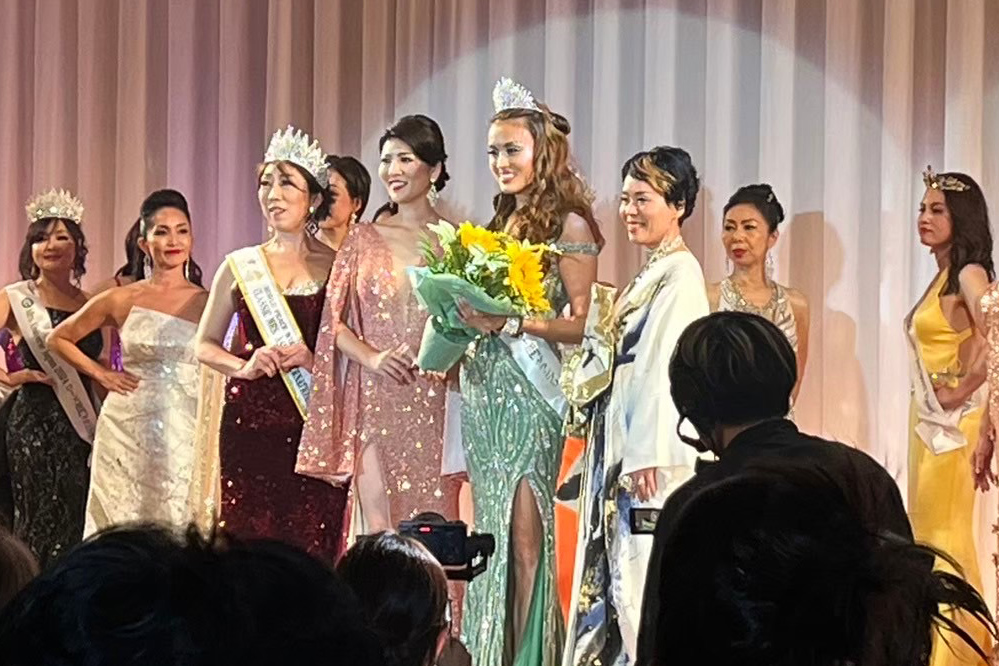
Building and Maintaining Friendships
That’s incredible. It also goes back to how you’re able to make friends with people with such different cultures, backgrounds, and circumstances. When you first meet someone, how do you find that common ground? And how do you stay friends with them when you’re in different countries or locations?
I’m naturally a very curious person. And I’m obviously outgoing. So I love meeting and getting to know new people.
When I meet someone new, I always ask questions that might be interesting to them. That’s how you find common ground. You introduce yourself to each other, and then talk about, like, “Where are you from? Oh, I’ve been there.” You just ask questions, questions, questions.
People love to talk about themselves, right? That’s why I ask so many questions and make them talk. And then all of a sudden you find that there’s so much in common. When you’re having a conversation, you can find common ground.
After that, if you want to keep in touch with some people, then I usually either go visit them in different countries or simply message them on WhatsApp. Social media helps but I’m not really big on it.
Keeping in touch takes effort but it’s a very simple action. You just have to message them, “Hey, how are you?” “I haven’t spoken to you for a while, and I just want to check in,” or “Hey, I’m going to visit this country; could you give me tips?” It’s good to keep in touch with people. To me, meeting people is like a treasure. So I guess I like to do that quite often.
That’s something that I really respect and appreciate about you. You’re always so good at staying in touch. We’re based in different countries now, but you always send me a message every time you visit, or to check in a couple of times a year, as you said.
What I also appreciate about you is that you always understand the other person’s personality and needs. You’re someone who’s always surrounded by friends everywhere you go. But you always make the time to see me one-on-one because you know that that’s what I’m comfortable with. I just wanted to thank you for that.
Yeah, of course.
It’s hard to meet people when you are older, I would say. You meet people through friends and connections. And I’m a very spiritual person, so I think meeting someone is meant to be. So I want to cherish that.
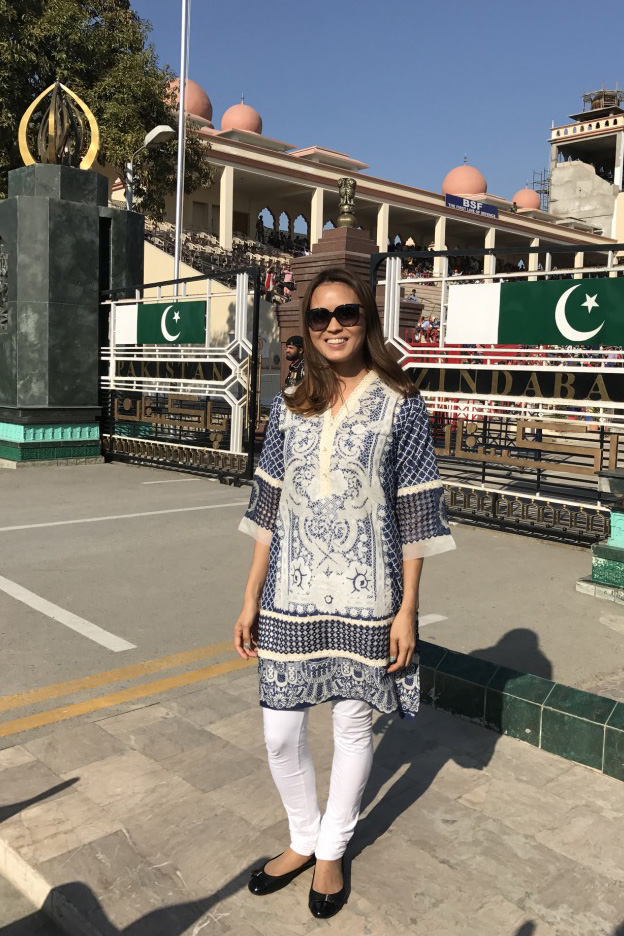
Becoming a Better Person
Would you have any advice for people who might be struggling because of difficult life choices, like where to be based (as they move around, where do they feel most comfortable?), and what sort of jobs they want?
I’m not sure if this is advice, but I truly feel that it’s a privilege. Personally, I’d be envious of them if they had the choice to live in different parts of the world or they could work for any company. That’s a privilege.
So I want them to take advantage of that, and embrace learning different cultures and perspectives and even challenges. Those only help you become a better person and a better human being, and give you positive life experiences.
I think that covered everything I wanted to ask. Is there anything you’d like to add, anything I missed?
No, Shiori. Thank you so much for giving me the opportunity to speak with you. This is my first time doing a podcast interview. So it was so exciting and nerve-wracking at the same time, but it was fun. Thank you.
Thank you.
